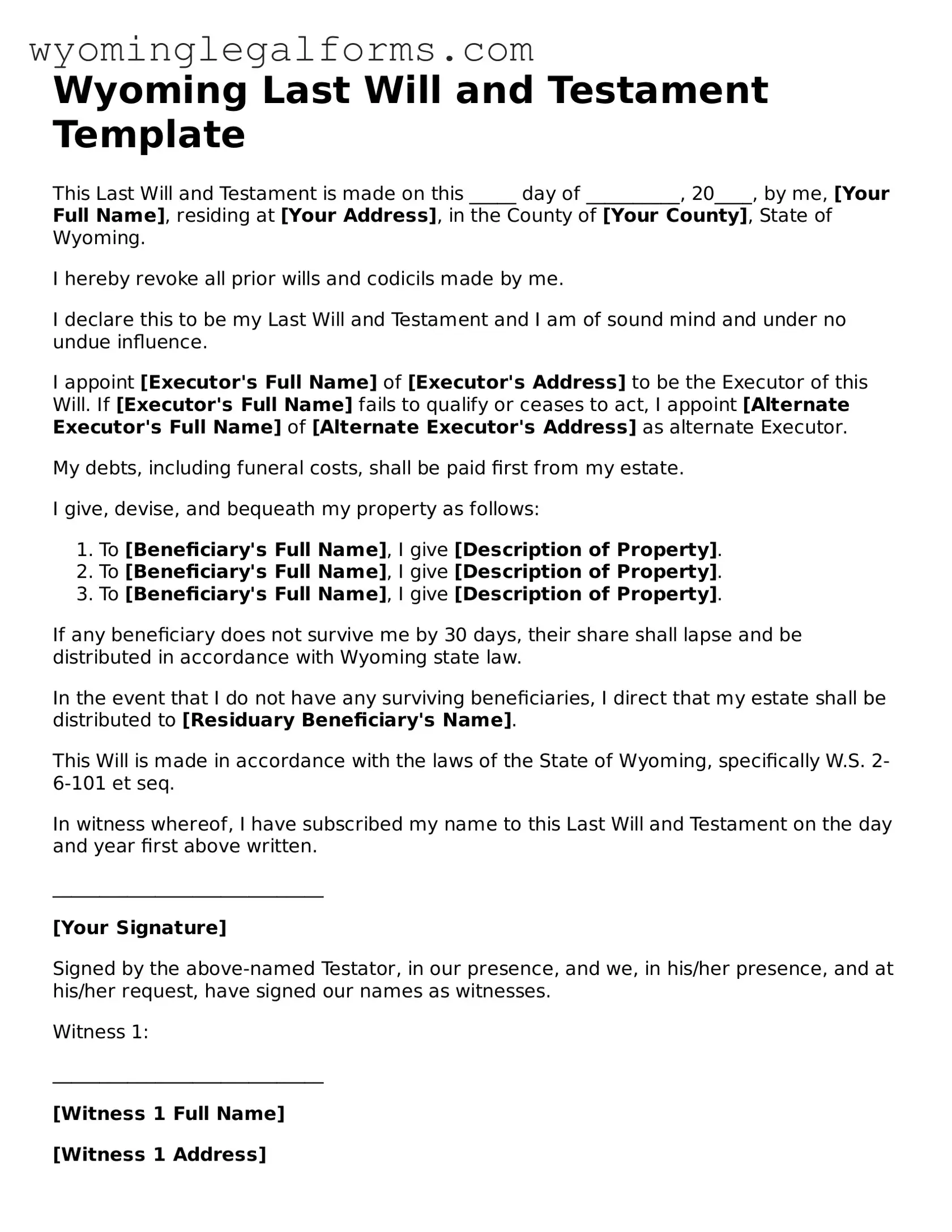Printable Last Will and Testament Form for Wyoming
A Last Will and Testament is a legal document that outlines how a person's assets and affairs should be managed after their death. In Wyoming, this form ensures that your wishes are honored and provides clarity to your loved ones during a difficult time. Understanding its importance can help you make informed decisions about your estate planning.
Access Document Here

Printable Last Will and Testament Form for Wyoming
Access Document Here
Time-sensitive? Finish the form quickly
Finalize your Last Will and Testament online quickly and download it.
Access Document Here
or
➤ PDF File
